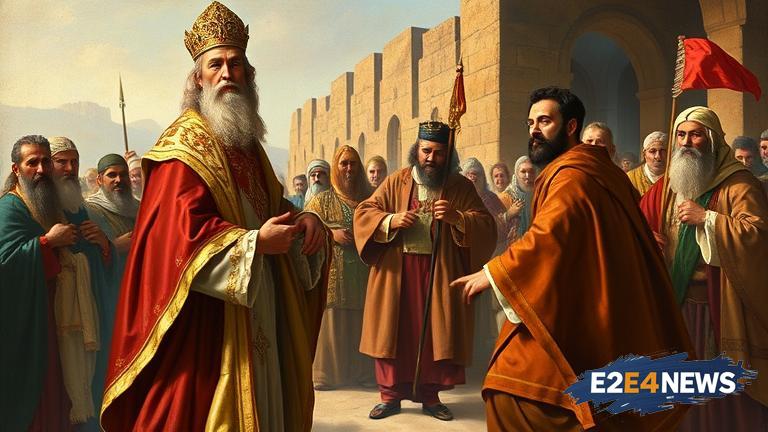In a recent development, the President of Palestine has made a direct appeal to Pope Leo XIV, seeking the pontiff’s intervention in the longstanding conflict in the Holy Land. This move underscores the critical role that religious leaders can play in international diplomacy, particularly in regions with deep historical and spiritual significance. The Holy Land, revered by Christians, Jews, and Muslims alike, has been a focal point of tension and conflict for decades. The President’s call to Pope Leo XIV is a strategic move, recognizing the Pope’s influence and moral authority on the global stage. Pope Leo XIV, known for his commitment to peace and dialogue, is likely to approach this situation with careful consideration and a deep understanding of the complexities involved. The Vatican has historically been involved in efforts to broker peace in the Middle East, leveraging its unique position as a sovereign city-state with diplomatic relations with nearly every country in the world. This includes past initiatives and statements from previous popes, who have consistently advocated for a two-state solution and an end to violence. The current situation in the Holy Land is marked by ongoing disputes over territory, access to religious sites, and the rights of various ethnic and religious groups. The international community has been calling for a peaceful resolution, with many countries and organizations proposing different solutions and frameworks for peace. The involvement of Pope Leo XIV could potentially bring a new dynamic to these efforts, given the respect and admiration he commands worldwide. His ability to convene leaders and inspire dialogue could be pivotal in breaking the current impasse. Furthermore, the Pope’s emphasis on the importance of religious freedom and the protection of minority rights could help address some of the core issues driving the conflict. As the situation continues to evolve, the role of religious diplomacy, led by figures like Pope Leo XIV, will be closely watched. The success of such efforts will depend on the willingness of all parties involved to engage in genuine dialogue and to seek solutions that respect the rights and dignity of all people in the region. The appeal from Palestine’s President to Pope Leo XIV is a significant step, indicating a recognition of the need for external, impartial mediation. It also highlights the complex interplay between political, religious, and cultural factors in the conflict. Moving forward, the international community will be looking to the Vatican and other religious leaders to play a constructive role in promoting peace and understanding in the Holy Land. Ultimately, a lasting resolution will require not only political will but also a deep commitment to the principles of justice, equality, and peace. The world watches with hope as Pope Leo XIV and other leaders navigate this challenging but potentially pivotal moment in the pursuit of peace in the Holy Land.
